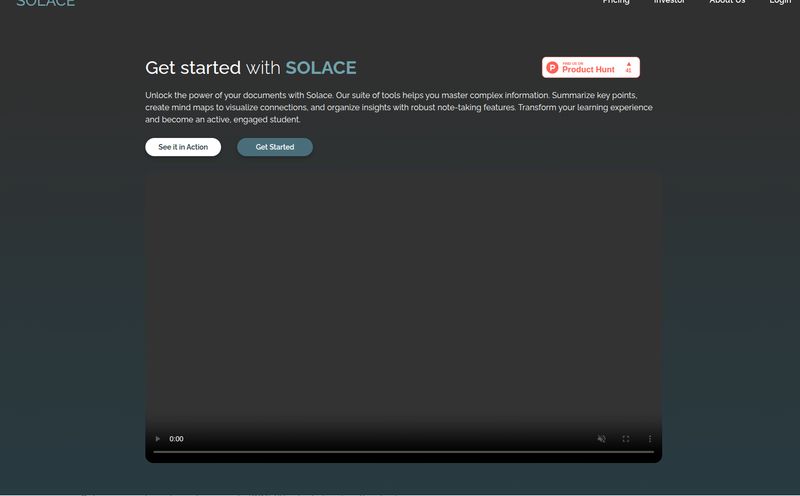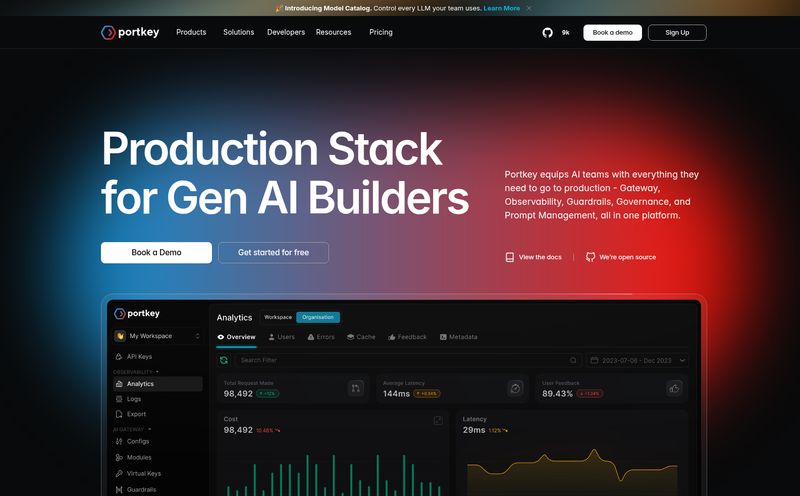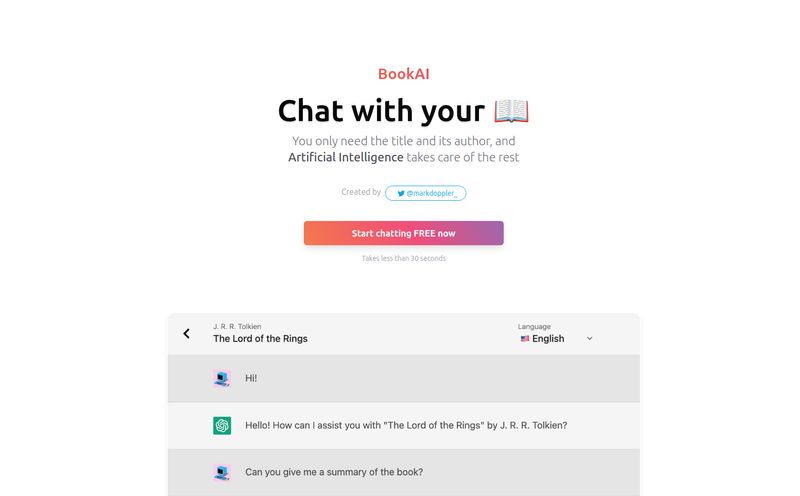Anyone working in AI, machine learning, or even high-end data analytics knows the struggle. It's a GPU war out there. Getting your hands on serious compute power, especially the top-shelf NVIDIA chips, can feel like trying to get front-row tickets to a Taylor Swift concert. You're either too late, the price is astronomical, or you're stuck in a virtual queue for months.
It's a bottleneck that can stall the most promising projects. I’ve seen teams with brilliant ideas get stuck in limbo, their models waiting for compute time that's just... not available. So, when a company pops up claiming to offer on-demand access to the latest and greatest GPUs, my ears perk up. Enter QSC Cloud. I stumbled upon them recently and decided to take a closer look to see if they're the real deal or just another mirage in the compute desert.
So, What Exactly is QSC Cloud?
At its core, QSC Cloud isn't trying to be the next AWS or Google Cloud. Thank goodness. Instead, they’ve carved out a very specific, very needed niche. Think of them less as a landlord building their own massive data centers and more as a specialist, a compute power concierge. They partner with a global network of GPU cloud providers to connect you with the hardware you need, when you need it.
They specialize in delivering NVIDIA GPU Cloud Clusters on-demand. This is for the heavy hitters—the deep learning models, the high-performance computing (HPC) workloads, and the massive AI projects that would make a standard server burst into tears. They're bridging the gap, connecting startups and enterprises with the raw power they need to innovate.

Visit QSC Cloud
The Big Guns: What Hardware Are We Talking About?
This is where things get exciting for tech nerds like me. A provider is only as good as its hardware, and QSC Cloud isn't playing around. They offer access to some of the most sought-after GPUs on the planet.
We're talking about:
- NVIDIA H100 & H200 GPUs: These are the current kings of the AI world. The H100 Tensor Core GPU is an absolute beast for training large language models (LLMs) and other massive AI workloads. The H200, its successor, brings even more memory bandwidth to the table, which is critical for handling gigantic models and datasets for inferencing. Getting access to these is a game-changer.
- AMD MI300 GPUs: It's not just a one-team show. It's smart to see them offering top-tier AMD hardware too. The MI300 series is AMD's powerful answer to NVIDIA, combining GPU and CPU technology into a single accelerator, making it a formidable choice for both AI and HPC.
Having access to this level of hardware without a multi-year, multi-million dollar commitment is, frankly, a huge deal.
Key Features That Caught My Eye
Beyond the shiny hardware, a few things about their model stood out to me. It's not just about renting a server; it's about the ecosystem they build around it.
Global GPU Connectivity
QSC Cloud touts its connections to a worldwide network of GPU providers. Why does this matter? Well, for one, it potentially means better availability. If one provider is tapped out, another might have capacity. It also means you could spin up resources closer to your data or your team, which can help knock down that pesky latency. It’s like having a friend in every port, but for compute.
Infrastructure That Scales
I’ve seen it a hundred times. A startup gets a seed round, buys a bunch of hardware, and six months later they've either outgrown it or it's sitting idle. QSC’s model is built to be flexible. You can scale your cluster up when you're in the thick of a training run and then scale it back down. This pay-for-what-you-use approach is just smarter for most businesses, preventing you from being locked into an infrastructure that no longer fits.
Tailored Solutions and AI Project Chops
This one is important. They aren't just slinging hardware. The website talks about providing customized solutions and having expertise in diverse AI projects. This suggests a consultative approach. They seem to understand the difference between a project needing a cluster for LLM training versus one focused on rapid inferencing. For teams that are strong on the data science but maybe a bit green on the infrastructure side, this kind of guidance can be invaluable.
Let's Talk Money: The QSC Cloud Pricing Conundrum
Alright, the all-important question: what does this cost? And here we hit a bit of a bump. You won't find a neat little pricing table on their website. It's a “Contact Us” for a quote situation.
Now, I know this can be a red flag for some. My initial reaction is always a slight groan. I prefer transparent pricing. However, in the world of bespoke, enterprise-grade solutions, it's not uncommon. The cost of a cluster depends heavily on the specific GPUs, the number of nodes, the duration, and the level of support. A one-size-fits-all price just wouldn't work.
That said, I did spot a very interesting tidbit on one of their pages: a banner advertising an “NVIDIA H200s AI Supercluster at just $1.90 per hour.” Now that is a concrete number, and for that level of hardware, it’s certainly competitive. It suggests their pricing is aggressive, but you'll have to reach out to get the full picture for your specific needs.
The Good, The Bad, and The GPU
So, let's break it down. No platform is perfect. Based on what I've seen, here's my honest take.
On the plus side, the access to cutting-edge NVIDIA and AMD GPUs is undeniable. For many, this is the only realistic way to get time on an H100 or H200. The scalability is another massive win, allowing businesses to grow without massive upfront capital expenditure. Their global reach and tailored, expert-driven approach are also strong selling points that differentiate them from faceless cloud giants.
On the other hand, the opaque pricing model is a hurdle. It requires you to engage with their sales team before you can even ballpark a budget, which can slow things down. Another point to consider is their reliance on partners. While this creates a broad network, it also means your experience could be subject to the quality and reliability of their third-party providers. It’s a model built on trust in QSC's vetting process.
Who is QSC Cloud Really For?
I don't think this is for the hobbyist tinkering with a weekend project. This is a professional-grade service for those with serious computational needs. I see a few ideal customers:
- AI Startups: Companies that have raised capital and need to train a foundational model but can't afford to build their own data center.
- Established Enterprises: Large companies that need to burst-scale for a specific, compute-intensive project without overhauling their existing infrastructure.
- Research Institutions: Universities and labs that require access to supercomputing-level power for scientific research and simulations.
If your project's success hinges on access to elite GPUs, QSC Cloud is definitely worth putting on your list to investigate.
My Final Thought on QSC Cloud
In a market defined by scarcity, QSC Cloud is positioning itself as a crucial enabler. They're not making the GPUs, but they are making them accessible. By acting as a specialized broker with a global network, they offer a compelling solution to one of the biggest problems in the AI space today.
Yes, you'll have to talk to them to find out what it'll cost. But for the chance to get your hands on the kind of hardware that powers the AI revolution, making that inquiry seems like a small price to pay. They could be the key that gets your next big project out of the waiting room and into the real world.
Frequently Asked Questions
- What is QSC Cloud?
- QSC Cloud is a specialized cloud service provider that offers on-demand access to high-performance NVIDIA and AMD GPU clusters. They partner with global providers to deliver compute power for AI, deep learning, and HPC workloads.
- What kind of GPUs can I get through QSC Cloud?
- They provide access to some of the most powerful GPUs available, including the NVIDIA H100, NVIDIA H200, and AMD MI300 series, which are designed for intensive computational tasks.
- How does QSC Cloud's pricing work?
- They don't list standard prices on their website. It's a customized quote model where you need to contact their team to discuss your specific project requirements. However, they have advertised specific offers, like an NVIDIA H200s cluster for as low as $1.90 per hour.
- Is QSC Cloud a good option for training Large Language Models (LLMs)?
- Absolutely. The hardware they offer, particularly the NVIDIA H100 and H200 GPUs, is ideal for training and running large language models, which is one of their stated areas of expertise.
- Does QSC Cloud own its own data centers?
- No, their model is based on partnership. They connect customers to a global network of leading GPU cloud providers rather than owning and operating the physical infrastructure themselves.
- Is this service suitable for small projects or beginners?
- It's primarily aimed at businesses and researchers with significant computational needs. While they might be able to craft a solution for smaller use cases, their focus is on large-scale, demanding AI and HPC projects.



